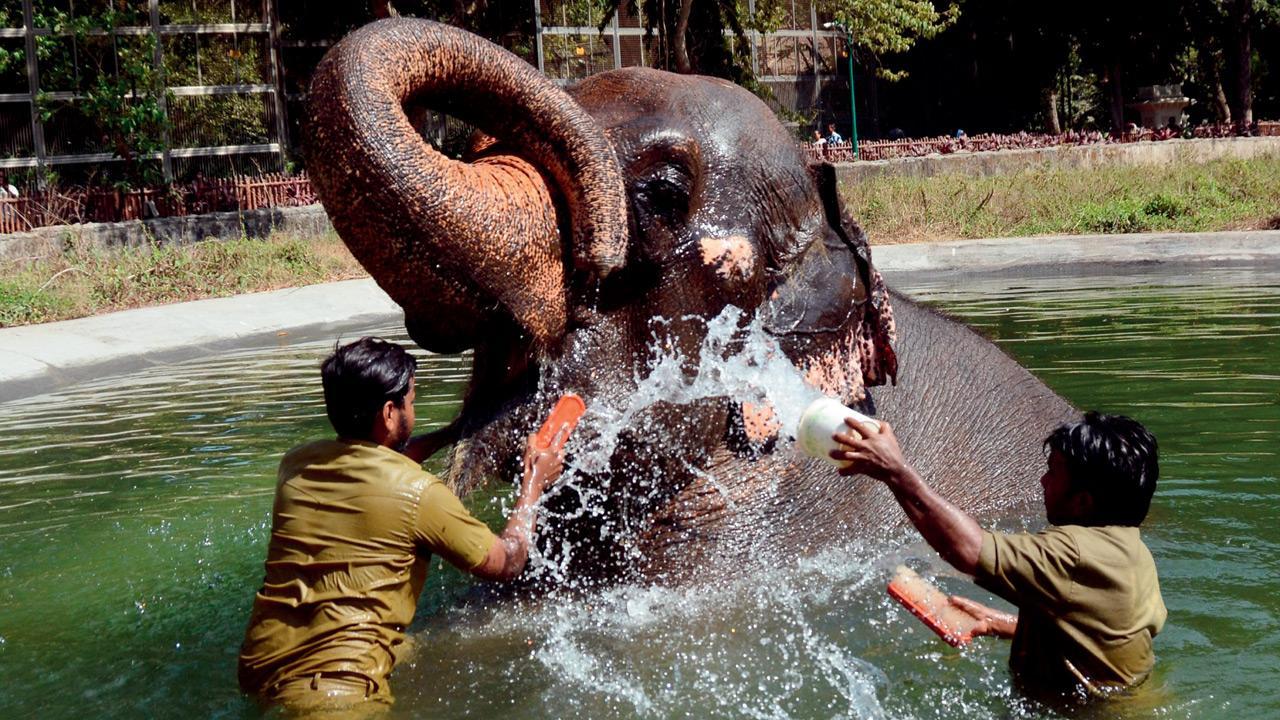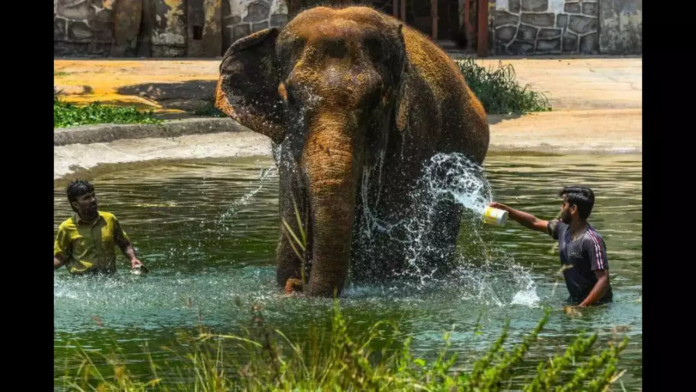The Veermata Jijabai Bhosale Vanaspati Udyan and Zoo in Mumbai, popularly known as Byculla Zoo, has decided not to house elephants anymore following the demise of its last elephant, Anarkali, on November 10, 2024. This marks the end of an era for the zoo, which had been home to these gentle giants for nearly five decades.
The Legacy of Anarkali
Anarkali, aged 58, was brought to the zoo in 1977 from a circus in Bihar alongside another elephant, Laxmi. At just 12 years old, Anarkali became a star attraction, delighting countless visitors with her playful demeanor and occasional rides before they were discontinued in the 1990s due to animal rights protests.
After Laxmi’s demise in 2020 due to a chronic heart condition, Anarkali exhibited signs of grief and loneliness, making her the sole elephant and oldest resident of the zoo. Despite her advancing age, she actively participated in enrichment activities, which included playing with wooden balls, enjoying artificial rain showers, and cooling off with fruit popsicles during the summers.

Her health began deteriorating on November 8, 2024, when she fell in her paddock area and was unable to stand despite assistance. Veterinarians treated her on-site, but she succumbed to cardio-respiratory failure caused by old age on November 10.
A Change in Policy
Following Anarkali’s passing, the zoo announced that it would no longer house elephants, aligning with the guidelines issued by the Central Zoo Authority (CZA). These guidelines, implemented in the early 2010s, prohibit zoos from acquiring new elephants, emphasizing the need for spacious and natural environments that many zoos, including Byculla Zoo, cannot adequately provide.
Sanjay Tripathi, Director of Byculla Zoo, explained, “The guidelines aim to ensure the well-being of elephants, who require large open spaces for movement. Despite the presence of a 4,000-square-meter enclosure, no new elephants will be brought in.”
Future of the Elephant Enclosure
The now-vacant elephant enclosure will be repurposed to house other animals. Zoo authorities are exploring species that can thrive in the existing facility while ensuring their specific needs are met. Once finalized, a proposal will be submitted to the CZA for approval.
“The space will be redeveloped to cater to our approved animal collection. Each species has unique requirements, and we will make the necessary modifications to provide them with the best possible environment,” added Tripathi.
The Broader Context: Elephants in Zoos
Elephants, known for their intelligence and complex social behavior, require expansive habitats that replicate their natural environments. Over the years, global awareness about the ethical treatment of elephants in captivity has grown, leading to stricter regulations and a shift toward relocating them to wildlife sanctuaries.
The decision by Byculla Zoo reflects a broader trend of prioritizing animal welfare and sustainability in zoo management. With limited space and resources, many zoos are rethinking the inclusion of large mammals like elephants in their collections.
Anarkali’s Legacy Lives On
Though Anarkali is no longer with us, her legacy remains a poignant reminder of the bond between humans and wildlife. Her life story underscores the importance of creating environments that respect the natural needs of animals, inspiring zoos and conservationists worldwide to strive for better care and understanding of wildlife.
As Byculla Zoo transitions into a new chapter, its decision to repurpose the elephant enclosure serves as a testament to evolving perspectives on ethical wildlife management. The zoo’s commitment to adapting its practices ensures that Anarkali’s memory will continue to inspire efforts for animal welfare and conservation.

